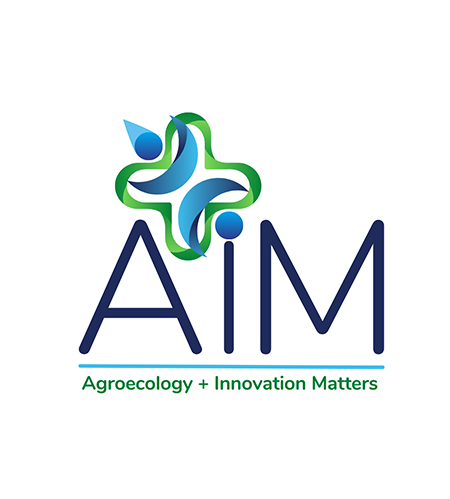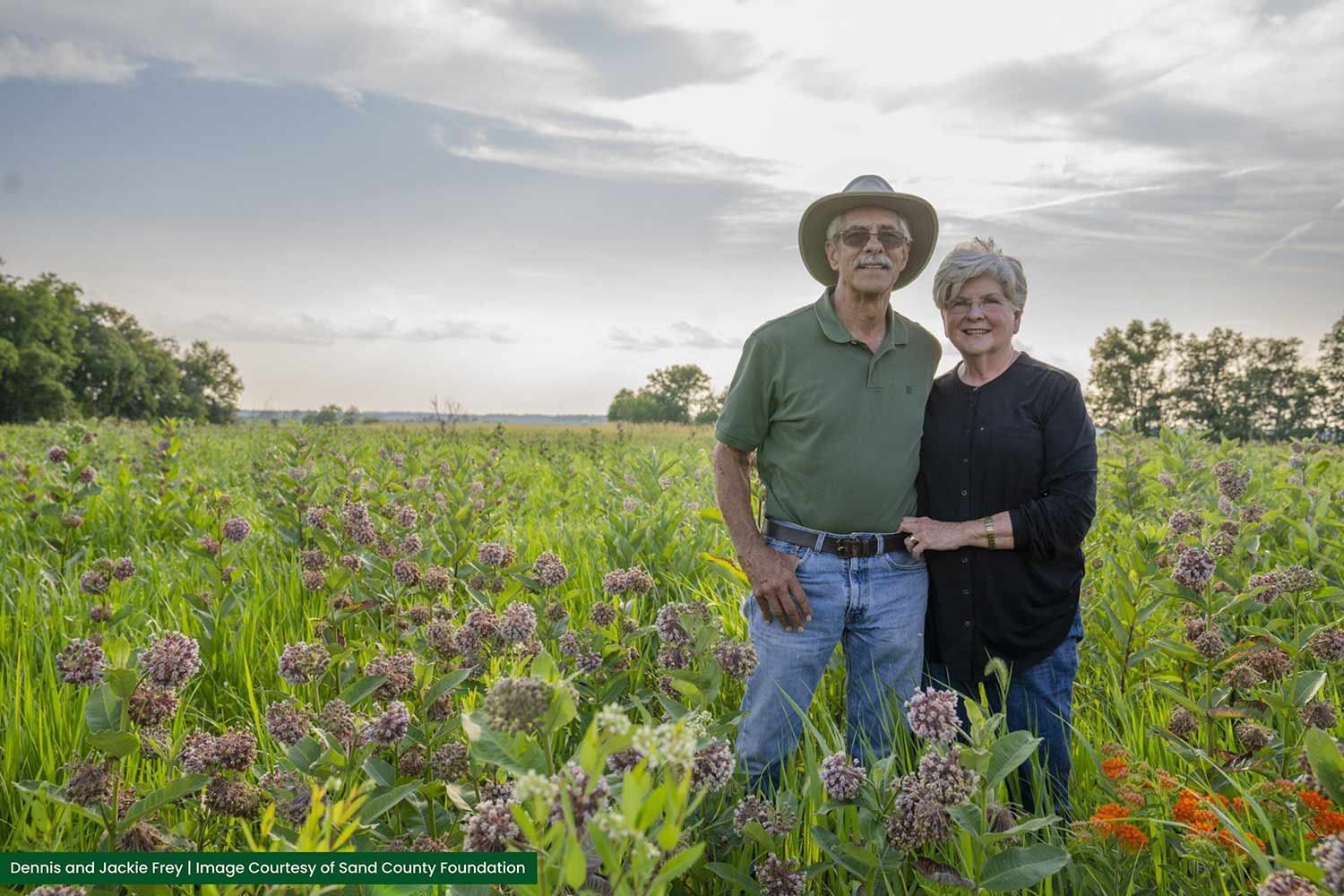For the past 50 years, Dennis Frey has been farming patches of the rolling Southern Illinois terrain in Hamilton County that is now entering its fifth generation in the family.
When he started, it was a traditional diversified family farm, with hogs, cattle, corn, soybeans, wheat, barley, and other crops. Over time, it evolved to almost exclusively row crops, particularly corn and beans. But over the last decade or two, it has continued to evolve.
Today it is a modern, diversified, 1,440-acre cattle and grain farm. While it is focused on corn and beans, it also has produced sunflowers, canola, milo, wheat, popcorn, hay, and warm-season prairie-grass seed. The farm also includes native prairie grasses and wildflowers, and hickory and oak trees, like the ones that used to dominate the region.
It’s this dedication to the land and its heritage that led to Frey’s selection as the first Illinois winner of the Leopold Conservation Award.
“I’m humbled to get this award,” he said at a small reception in Decatur during the Farm Progress Show – stressing that “this is a group effort” among family members on the farm.
Lance Irving, national director for the Leopold Conservation Award at the Sand County Foundation, cited Frey as embodying the idea that “conservation and production should have a symbiotic relationship.” Irving noted at the reception that with the announcement, the Leopold awards are now presented in 27 states, starting with Colorado in 2003.
“It’s state-specific because there’s such a difference among” topography, climate, soil, types of farms from state to state – not to mention within a single state, Irving said. Perhaps more importantly, identifying winners in individual states also helps to promote and spread the word about conservation practices in many states and inspire other landowners to improve soil health, water resources and wildlife habitat on their working land.
It does so in each state with support from partners that help to spread the message. Local partners are Illinois Corn Growers Association and Illinois Soybean Association, and American Farmland Trust is a national partner.
The Foundation sees the awards for the Frey family and others as a way to build bridges connecting agriculture, government, environmental organizations, industry, and academia to advance the cause of environmental improvement on private land.
Dennis Frey received a degree in plant and soil science in 1973 from Southern Illinois University, and worked on a USDA survey team that identified soil types and did soil mapping. He also worked as a resource conservationist for the Hamilton County SWCD.
“That exposed me to a lot of conservation processes,” Frey said, “and exposed me to soil properties and conserving resources.”
What he learned in that work he applied on his own family’s farm. That led to on-the-job education in reduced tillage, no-till, cover crops, as well as native prairie grasses and forestry – which enhanced his long appreciation for wildlife. He has long had land in the Conservation Reserve Program.
“Our area had highly erodible soil, and that’s why we got into prairie grasses” such as Big Bluestem, Gamma Grass, Indian Grass, Switchgrass and prairie wildflowers on a 240-acre parcel, Frey said. “That was not productive land, but had an abundance of wildlife, aesthetics, and other benefits. It improves the ground.”
The family also planted more than 20,000 hardwood trees, and installed several miles of terraces, grassed waterways, and other erosion control structures in a part of Southern Illinois that was historically hickory and oak forest; prairie made up only a small portion of the region.
After years of reduced tillage since the 1970s, the farm has been totally no-till for about a dozen years, and has used cover crops a bit longer. Frey said there’s no easy formula for making such changes, but a lot of trial and error.
As his son-in-law, Brock Holston, takes the reins in the farm’s fifth generation, Holston’s interest in hunting and fishing adds another dimension of conservation – with food plots and with constructed ponds and wetlands designed to provide habitat to fish, waterfowl, and wildlife populations.
Yet another generation is already in line. A video that accompanied the award presentation to Frey included a clip of his 10-year-old grandson, Tucker Holston, answering a question about conservation.
“You have to work and listen to do it right,” Tucker said.
Did Tucker mean listen to Grandpa? Or did he mean listen to the ground and water? Frey and his wife, Jackie, looked at each other and chuckled. They said Tucker is thoughtful enough at that young age that he maybe does listen to nature.
Instilling a love of the land in the next generation is the ultimate yield. The Frey family is raising crops, but also raising new generations of land stewards.
Story by Brian Williams — a freelance writer, consultant, and “Dot Connector” who contributes to AIM Illinois through his association with HNA Networks.
Get stories like this in your mailbox by subscribing to the AIM newsletter.

